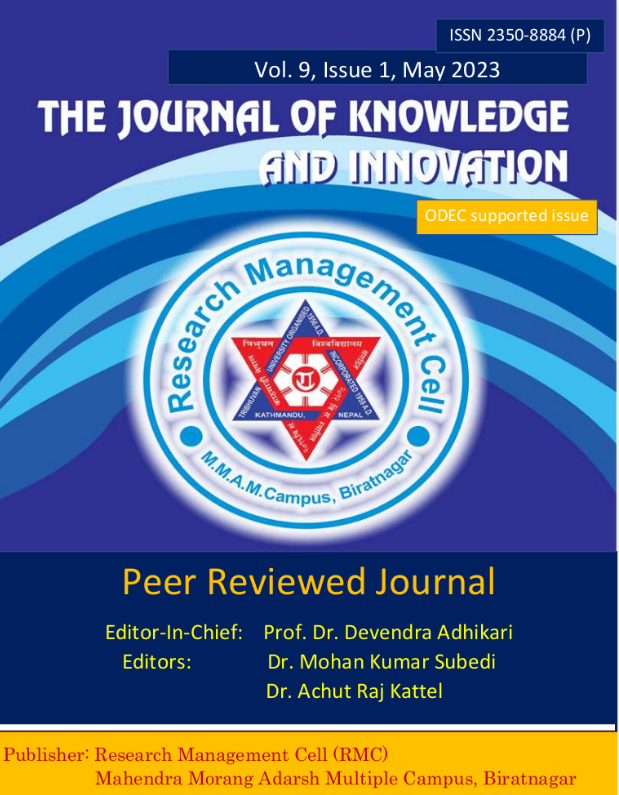Knowledge and Practice of Iodized Salt Consumption among Household of Morang
DOI:
https://doi.org/10.3126/jki.v9i1.53566Keywords:
Household, Iodine Deficiency Disorders, Iodized SaltAbstract
Iodine is a necessary micronutrient, required for the synthesis of thyroid hormones, which are necessary for the normal growth and development of the body. Iodine Deficiency Disorders (IDD) is major public health issues that affect people of all ages. IDD affects around 2 billion individuals worldwide with approximately 50 million experiencing clinical symptoms. Iodine deficiency illness was once common in Nepal. The Government of Nepal has made several attempts to address IDD by fortifying salt with iodine, but the problem persists, particularly in Nepal's hilly and mountainous regions. Thus the objective of the study was to assess the level of knowledge and practice of iodized salt consumption among household of Sundarharaincha-12, Morang. A cross-sectional research study was used where respondents were selected by using non probability purposive sampling technique. Total 106 household was included in research study. A semi-structured questionnaire for data collection was used by interview method. Finding was analyzed by using SPSS version 16. The findings of the study showed that all of the respondents (100.0 %) had knowledge that iodine is an essential element needed for life. About three fourth of the respondents (74.5 %) regular used two child logo salt. Almost all respondents (95.3 %) added salt during cooking. Education and type of family of the respondents had association with the level of knowledge and ethnicity, education and income of the respondents had association with the level of practice of iodized salt consumption.
The study was concluded as majority of the respondents had good knowledge while few of the respondents had poor knowledge on iodized salt consumption. However, their knowledge levels were not reflected in their practices as only more than two third of households had good practice while one third had poor practice of iodized salt consumption.
Key Words: Household, Iodine Deficiency Disorders, Iodized Salt, Knowledge, Practice.
Downloads
Downloads
Published
How to Cite
Issue
Section
License
Copyright (c) 2023 Research Management Cell (RMC), Mahendra Morang Adarsh Multiple Campus

This work is licensed under a Creative Commons Attribution-ShareAlike 4.0 International License.
This license enables reusers to distribute, remix, adapt, and build upon the material in any medium or format for noncommercial purposes only, and only so long as attribution is given to the creator.




